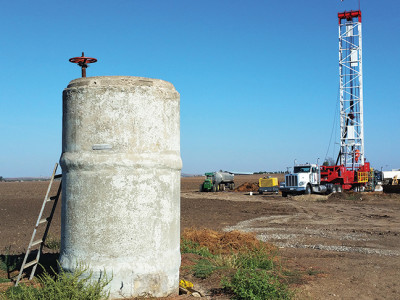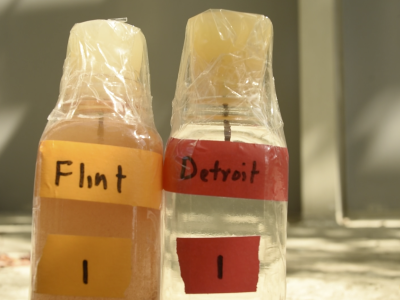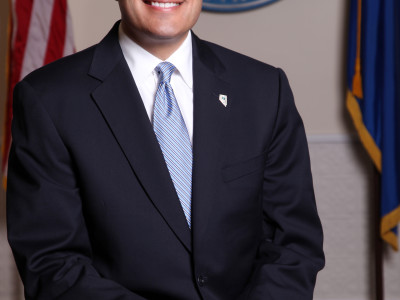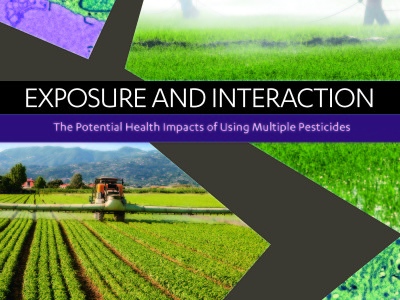General
The Devil is in the Design: Forming California’s New Groundwater Agencies
By Dave Owen and Mike Kiparsky
Cross-posting from the Environmental Law Prof Blog. This post was written by Dave Owen and Mike Kiparsky. It is based on a recent report, co-authored with Nell Green Nylen, Holly Doremus, Barb Cosens, Juliet Christian-Smith, Andrew Fisher, and Anita Milman. Not that long ago, the opening words of one of Joe Sax’s articles described California pretty well. “We Don’t …
Continue reading “The Devil is in the Design: Forming California’s New Groundwater Agencies”
CONTINUE READINGAnother California Regulatory Agency in Crisis: Southern California’s Air Quality Management District Fires Longtime Executive Officer
Barry Wallerstein’s Ouster from SCAQMD Signals Tilt Away from Protection of Public Health
In a move that shocked the environmental advocacy community and low-income communities of color that suffer most from the impacts of poor air quality in Los Angeles, the governing board of the South Coast Air Quality Management District fired its longtime executive officer Barry Wallerstein today, voting 7-6 in closed session to remove him from …
CONTINUE READINGSan Jose’s Inclusionary Housing Ordinance Dodges Supreme Court Bullet
Justices Deny Review of California Supreme Court Decision Upholding San Jose Measure
Advocates of the City of San Jose’s controversial inclusionary housing ordinance, which was upheld in a 2015 California Supreme Court decision, are breathing a sigh of relief this week. That’s because the U.S. Supreme Court has denied the California Building Industry Association’s petition for certiorari in the case. But the available evidence suggests that the High Court …
Continue reading “San Jose’s Inclusionary Housing Ordinance Dodges Supreme Court Bullet”
CONTINUE READINGLessons From Flint
A public-minded researcher discovers serious contamination of drinking water. His efforts to alert local officials are rebuffed. Concerned over how this will affect their reputation and the town’s economy, the authorities sit on the evidence and deny any problems. All the while, trusting people continue to drink unsafe water. While the setting may call to …
Continue reading “Lessons From Flint”
CONTINUE READINGRisk Subsidies and the Future of Nuclear Power in the U.S.
Should We Take Into Account Government Subsidies that Reduce the Risks Borne by the Nuclear Industry as We Consider Our Energy Future?
As I’ve written about before, U.S. law massively subsidizes the nuclear power industry. In particular, a law called the Price-Anderson Nuclear Industries Indemnity Act dramatically skews the incentives to develop nuclear plants, and to site them in places where there is a lot of risk, because it requires the public to bear much of the …
Continue reading “Risk Subsidies and the Future of Nuclear Power in the U.S.”
CONTINUE READINGNevada Governor Sandoval on Obama’s Short List of Supreme Court Candidates
How Would a Justice Sandoval Vote on Environmental Issues?
Multiple news sources reported Wednesday that the Obama Administration has floated the first identified candidate the President is considering nominating to the U.S. Supreme Court to replace Justice Antonin Scalia, who died unexpectedly earlier this month. That candidate is a most intriguing and unconventional one: Nevada Governor Brian Sandoval–a Republican. Sandoval, 52, received his law …
Continue reading “Nevada Governor Sandoval on Obama’s Short List of Supreme Court Candidates”
CONTINUE READINGDoes Sri Srinivasan’s Clean Power Plan Role on the D.C. Circuit Panel Hurt His Nomination Chances?
He may feel compelled to recuse himself, lowering the odds that the CPP is upheld in the Court of Appeals
Some environmentalists are already criticizing Sri Srinivasan’s environmental credentials because as a lawyer at O’Melveny & Meyers he defended Exxon Mobil and Rio Tinto, a mining company, in cases alleging human rights abuses in Indonesia and Papau New Guinea. He also represented Enron villain Jeff Skilling. But I wonder if Srinivasan’s nomination raises a different, …
CONTINUE READINGThe Tricky Problem of Cumulative Exposures
A new UCLA report finds reason to be concerned about cumulative risk, and notes that under CA law regulators are required to act
We are all exposed to hundreds, if not thousands of chemicals through consumer products, air pollution, drinking water, and occupational exposures, just to name a few. Yet chemicals and pollutants are largely assessed and regulated individually. Increasingly, environmental health professionals have been attempting to grapple with assessing the risk of exposure to multiple chemicals. New …
Continue reading “The Tricky Problem of Cumulative Exposures”
CONTINUE READINGWhat Does Justice Scalia’s Death Mean for the Clean Power Plan?
Basically, everything
I am very sensitive to the emotions surrounding the sudden death of Justice Antonin Scalia and feel deep sympathy for his family, many friends and colleagues. He was a towering intellectual force and we will be dissecting his influence for years to come. Yet the death of a public figure — especially one as …
Continue reading “What Does Justice Scalia’s Death Mean for the Clean Power Plan?”
CONTINUE READINGCalifornia Coastal Commissioners Fire Executive Director Charles Lester
Personnel Dispute is Commission’s Biggest Political Controversy in Over a Decade
Following months of public controversy and a marathon 10 1/2 hour hearing Wednesday in Morro Bay, a closely-divided California Coastal Commission voted to fire its Executive Director, Charles Lester. The Commission vote to remove Lester was 7-5. Lester, who as Executive Director has led the Commission staff for the past 4 1/2 years, is the …
Continue reading “California Coastal Commissioners Fire Executive Director Charles Lester”
CONTINUE READING










